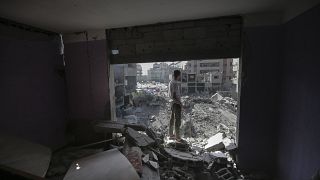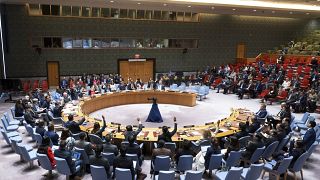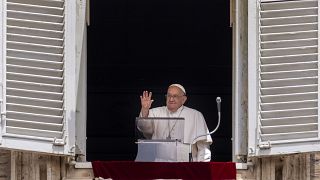Israeli-Palestinian conflict
Can a US-backed ceasefire proposal bring some respite to Gazans?
Qatari and Egyptian mediators confirmed Tuesday (Jun. 11) that Hamas suggested some “amendments” to the three-phase plan.
Hamas spokesman Jihad Taha said the response included “amendments that confirm the cease-fire, withdrawal, reconstruction and (prisoner) exchange.” He did not elaborate.
The White House national security spokesman told reporters; the US was "evaluating" the remarks.
While supporting the broad outlines of the deal, Hamas officials have expressed wariness over whether Israel would implement its terms, particularly provisions for an eventual permanent end to fighting and full Israeli withdrawal from Gaza in return for the release of all hostages held by the militants.
The UN security Council endorsed the US ceasefire proposal on Monday (Jun. 10).
An analyst for the International Crisis Group said the U.N. Security Council's vote approving a resolution on a Gaza ceasefire was "an important vote, but it is a symbolic one" aimed at ending the eight-month war between Israel and Hamas in Gaza.
Maya Ungar who is an analyst for the International Crisis Group says the reality on the ground remains unchanged before theceasefire takes effect.
READL ALSO: Gaza war: UN Security Council adopts US ceasefire plan
“This is an important vote, but it is a symbolic one. I think what's important when we're talking about yesterday's resolution is to not overplay its significance on the ground. Well, it is fantastic that you had a broad swath of the international community who were in agreement, pushing for, a permanent ceasefire,” the analyst says.
"At the end of the day, Israel is still has its ground incursion in Rafah. You still see the civilians of Gaza who are suffering."
In Jordan on Tuesday (Jun. 11), U.S. Secretary of State Antony Blinken repeated that Prime Minister Benjamin Netanyahu was committed to the proposal when they met Monday (Jun. 10).
However, the most recent public statements by the Israeli PM have yet to suggest an acceptance of the plan.
What's behind Netanyahu's position?
The proposal was announced by U.S. President Joe Biden last month. He presented it as an Israeli proposal, but Israeli PM Netanyahu has publicly disputed key aspects of it, saying Israel won’t end the war without destroying Hamas and achieving the return of all the hostages.
The resignation of Benny Gantz, a senior member of Israel's war Cabinet was a dramatic show of distrust in Prime Minister Benjamin Netanyahu and his strategy for the eight-month-old war with Hamas.
For now, the Israeli leader becomes more heavily reliant on far-right allies who oppose the latest U.S.-backed cease-fire proposal and want to press ahead with the war.
This means that a cease-fire deal could shatter Prime Minister Benjamin Netanyahu’s governing coalition and make him more vulnerable to a conviction in his corruption trial.
Alternative US plan?
Citing two current senior U.S. officials and two former senior U.S. officials, US media outlet NBC News has reported that officials from the Biden administration have discussed potentially negotiating a unilateral deal with Hamas to secure the release of five Americans being held hostage in Gaza if ongoing cease-fire talks involving Israel fail.













01:55
US contractors say colleagues fired live ammunition at Palestinians seeking food
01:04
Israeli airstrike on popular Gaza City beach café kills at least 30
01:03
Iran’s judiciary says at least 71 killed in Israel’s attack on Tehran prison
01:15
Egypt condemns Israeli 'aggression' against Iran, backs ceasefire
00:58
Iran: Hundreds of thousands mourn top military figures, civilians killed by Israel
01:11
Yemen: Tens of thousands hold pro-Iran rally